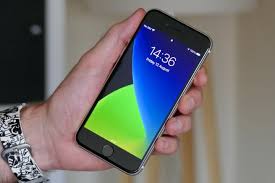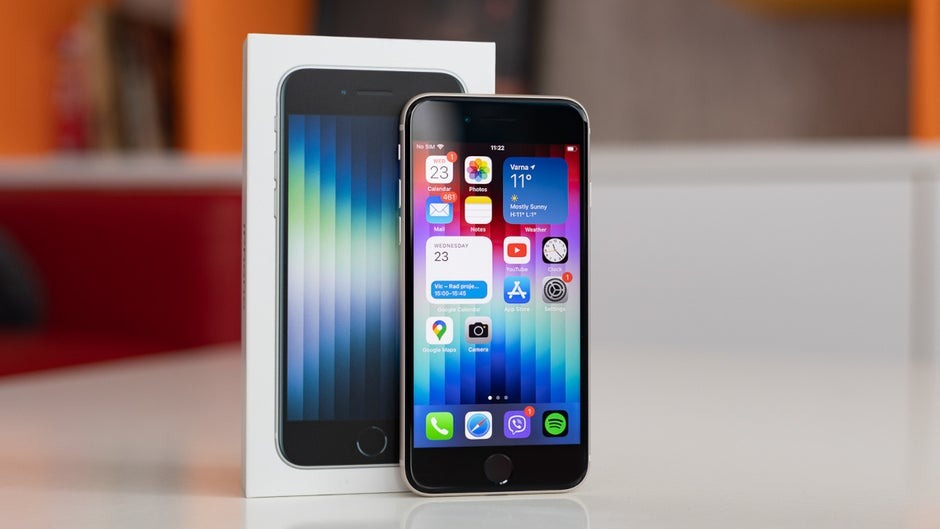In the EU, Apple will stop selling these iPhone models in approximately two weeks, marking a significant shift in the availability of some of its most popular devices. This development stems from new regulatory compliance requirements and market dynamics that have prompted the tech giant to reconsider its product lineup in the region. While Apple has not formally announced the exact models affected, credible sources indicate that older iterations, particularly those released several years ago, are likely to be phased out. This decision aligns with Apple’s broader strategy of streamlining its offerings and prioritizing newer, more innovative technologies that meet evolving standards.

The cessation of sales for certain iPhone models in the European Union highlights the growing influence of regulatory frameworks on the tech industry. The EU has been a leader in implementing stringent requirements aimed at ensuring consumer safety, environmental sustainability, and market fairness. Recent mandates, such as those targeting electronic waste reduction and universal charging standards, have necessitated adjustments from all major manufacturers. Apple, despite its significant global presence, has not been exempt from these demands, leading to this pivotal decision that could affect millions of users across Europe.
If you currently own or plan to purchase an older iPhone model, this change might prompt you to reassess your options. With these models set to be discontinued, considerations surrounding software updates, repair availability, and compatibility with newer accessories become increasingly relevant. Apple’s move also raises questions about how it will handle existing warranties and ongoing support for these devices. Historically, the company has maintained a robust after-sales support framework, but this situation could introduce unique challenges, especially for models no longer in production or widely available.
For many, the primary concern revolves around software updates. Apple has long been praised for its commitment to providing extended software support for its devices, often surpassing competitors in this regard. However, as sales of specific iPhone models cease, the timeline for future updates becomes uncertain. Users of discontinued models might eventually face limitations in accessing the latest iOS features, security patches, and compatibility enhancements. This could influence your decision to upgrade to a newer device or stick with an older model for as long as it remains functional.
Another crucial factor to consider is repairability. As the availability of spare parts diminishes over time, maintaining older devices could become increasingly expensive and inconvenient. Apple’s network of authorized service providers has historically ensured high-quality repairs, but the discontinuation of certain models might result in reduced inventory for key components. For those who rely heavily on their devices, this potential scarcity underscores the importance of planning ahead, whether through proactive repairs or exploring trade-in programs that offer credit toward newer models.
Apple’s decision also ties into its broader environmental initiatives. By phasing out older models, the company aligns itself with sustainability goals, including reducing electronic waste and improving energy efficiency. The EU’s regulatory push for a universal USB-C charging standard, which Apple adopted in its latest devices, exemplifies these priorities. While this transition benefits the environment, it introduces a transitional period during which consumers and businesses alike must adapt to changing standards. Understanding these implications can help you make informed choices, whether you are an individual user or a stakeholder in the broader tech ecosystem.
The economic ramifications of this move are equally noteworthy. Discontinuing older iPhone models could create opportunities for competitors to capture a share of the budget-conscious market segment. While Apple continues to dominate the premium smartphone category, its decision to exit the mid-tier space for certain models might leave a gap that rivals are eager to fill. Brands such as Samsung, Xiaomi, and Oppo, which offer competitively priced alternatives, are likely to benefit from this shift, intensifying competition and potentially driving innovation across the industry.
Moreover, this development invites reflection on Apple’s long-term strategy in the EU. The region represents a significant portion of the company’s revenue, and complying with its regulations is both a challenge and an opportunity. By prioritizing compliance and aligning its product portfolio with regulatory standards, Apple not only avoids potential fines but also positions itself as a responsible corporate entity. This approach resonates with consumers who value sustainability and ethical business practices, potentially strengthening Apple’s brand loyalty in the long run.
As the two-week deadline approaches, you may notice shifts in the availability and pricing of affected iPhone models. Retailers might introduce discounts to clear existing inventory, creating opportunities for bargain hunters. However, it is essential to weigh the benefits of a reduced price against the potential drawbacks of owning a discontinued device. While the immediate savings might seem appealing, the long-term implications, including reduced software support and repair options, should be carefully considered.
If you are a business owner or developer, this change could also impact your operations. Older iPhone models often serve as testing devices for app development, particularly for those targeting users with a diverse range of hardware. The discontinuation of these models might necessitate adjustments to testing protocols, ensuring that your applications remain compatible with the devices still in circulation. Additionally, businesses that rely on iPhones for employee use might need to evaluate the feasibility of upgrading to newer models to maintain productivity and security.
In navigating this transition, it is helpful to explore the resources available through Apple’s ecosystem. The company’s trade-in program, for instance, offers a convenient way to offset the cost of upgrading to a newer device. By trading in an older model, you contribute to Apple’s recycling initiatives while gaining access to the latest technology. Additionally, Apple’s customer support channels can provide valuable guidance on managing this change, from transferring data to understanding warranty coverage.
The decision to stop selling specific iPhone models in the EU reflects a confluence of regulatory, environmental, and market considerations. For you, the consumer, this moment serves as an opportunity to reevaluate your relationship with technology, prioritizing devices that align with both your needs and broader sustainability goals. Whether you choose to upgrade, repair, or explore alternative brands, staying informed about these changes empowers you to make choices that maximize value and minimize disruption.
Looking ahead, Apple’s commitment to innovation and adaptability will likely continue to shape its trajectory in the EU and beyond. While the end of sales for certain iPhone models marks the conclusion of one chapter, it also sets the stage for new advancements that promise to redefine your smartphone experience. By staying engaged with these developments, you position yourself to navigate the evolving tech landscape with confidence and clarity.










Add Comment